BB: Your new novel, Leaving Time, comes out today. How was this new novel different for you in terms of the writing and publication process?
JP: It was a real challenge to write — from a technical perspective. I can’t say any more without giving away too much! As for the publication, this is my first book with my new publisher, Random House. I’m thrilled at their excitement, their expertise, and their decision to publish in the fall!
BB: You’ve had a very successful career, consistently landing on the national best seller lists and garnering high praise from the likes of Stephen King. You’re also blessed with fans who are passionate and loyal. To what do you owe this success? And what do you feel are your responsibilities to it?
JP: I do think a lot of success is timing. If I were starting out today, I don’t know if I’d be published. Then again, even talent only gets you so far. I think that I am also patently stubborn, and that tenacity is rewarded in the publishing business. I paid my dues — from getting over 100 rejections from agents to having abysmal moments in my career that made me think about throwing in the towel. People are surprised to hear that it wasn’t really until only about eight years ago that I became a successful bestseller — but I’ve been published for twenty. That speaks to patience — another commodity writers must have. I also – as you pointed out – have amazing fans. They are willing to go wherever I choose to take them — and given the subject matters of my novels, those roads are very disparate. To that end, I feel obligated to make sure I am not phoning in a performance when I write; that I am giving those loyal fans the very best book I can write at that moment. It’s why I constantly set up challenges for myself either in voice, plot, or structure — to keep myself on my toes, instead of just repeating myself.
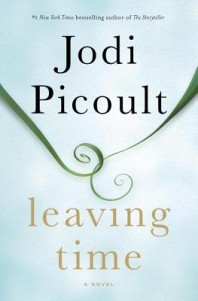 BB: Families of all types are central to your work. In Leaving Time, you have two that I’d like to learn a little more about: the central trinity of Jenna, Serenity, and Virgil and the family that is made up of the workers at the elephant sanctuary. Both of these are what I think of as “created” families–not related by blood, but with similar roles and dynamics to those of biological families. Although Jenna is part of both families, they are separate entities with different roles in her life (and now this is starting to sound like a book report). Why these two families? What does each of them have to give to Jenna that she can’t get from the other? Or, what is it that Jenna brings to each of them that they can’t get from someone else?
BB: Families of all types are central to your work. In Leaving Time, you have two that I’d like to learn a little more about: the central trinity of Jenna, Serenity, and Virgil and the family that is made up of the workers at the elephant sanctuary. Both of these are what I think of as “created” families–not related by blood, but with similar roles and dynamics to those of biological families. Although Jenna is part of both families, they are separate entities with different roles in her life (and now this is starting to sound like a book report). Why these two families? What does each of them have to give to Jenna that she can’t get from the other? Or, what is it that Jenna brings to each of them that they can’t get from someone else?
JP: The trio of Virgil, Jenna, and Serenity is the most important family in the book, really, because they are all broken individuals that somehow, when combined, form a whole. I think that is pretty much the definition of a family that isn’t related by blood. In Africa, there is a saying I quote in the book: If you want to go fast, go alone; if you want to go far, go together. For Jenna, traversing the path she really must take in order to move on cannot be achieved without the support and help and talents of Virgil and Serenity. As for the sanctuary — what they offer Jenna is less important than what they offer her mother — namely, a solidarity of purpose, and a belief in the cognitive abilities of the elephant. It is this scientific philosophy that Jenna turns back to, trying to read between the lines to find clues about her missing mother.
BB: Here in Portland, our zoo has had a successful elephant breeding program for more than fifty years. In the past few years, though, the value of that program, especially weighed against the health of the elephants, has been called in to question. An effort to move the elephants from the zoo to a sanctuary has been gaining support and visibility, so your book came to my attention at a time when elephants were already on my mind. Can you tell us a little about the elephants in your book? About your research? Your personal feelings about elephants in captivity? What do you think are the things that need to be done to serve and save the world’s elephants? Or, more to the point, what can the average person do to help?
JP: So, I could talk about this for the next six years, but I will try to be brief. First, the elephants in my book are based off elephants I met at The Elephant Sanctuary in Tennessee (Flora really did throw a rock a me!) and in Botswana, drawing on the experiences of the researcher I shadowed (for example, Alice’s story about the elephant caught in the snare and his mother charging the vehicle really did happen). Meeting these elephants in the wild and in sanctuaries really hammered home for me the damage done to elephants in captivity. The point of zoos was to develop breeding programs and more importantly to encourage conservation of animals that might not be indigenous to a country. However, the need for this has been reduced as the internet has developed. Any school kid, for example, can learn about elephants in Africa with a click.
Elephants suffer greatly in captivity. The zoo habitat is never large enough to accommodate an elephant. Moreover, elephants live in herds, so creating a “fake herd” of two of three elephants is much like throwing a human into a cell with a stranger and assuming they will be fast friends. 75% of elephants in North American zoos are overweight, 40% have foot or joint problems, and 80% have behavioral tics like head bobbing or swaying due to stress. For every elephant born in a zoo, another two die — so even saying that zoos foster breeding programs is not quite accurate. Ideally, elephants should not be in zoos. Sanctuaries allow an elephant to live out the rest of its life in a habitat that is hundreds of acres, and to not be on display — in sanctuaries, elephants set their time for coming and going. Of course, elephants in the wild are not thriving either. In Africa, 38K elephants are killed each year by poachers. Right now the estimate is that in ten years there will be no more African elephants. The price of an ounce of ivory has skyrocketed from $150 to $1300, due to demand from the far east (Southeast Asia and China). And lest you think poaching doesn’t matter here in the US, every month 1-3 tons of ivory is poached by members of Al Shabaab, a terrorist group in Somalia with clear links to Al Quaeda.
In order to save elephants, we need to continue to spread the word about poaching, as Tusk and the Clinton Global Initiative have done. The UN has created a resolution saying that poaching fuels instability in countries, and President Obama banned ivory trade in the US. This is all a good start. But in addition, the countries where poaching is the worst needs to offer their farmers an economic alternative to the one being offered by poachers. Local governments need to see that the cost of losing tourism will far exceed the immediate cash flow of poaching elephants, and need to create punishments for poachers that reflect this. At the same time, those who demand ivory need to be educated about the reality of poaching — many believe that an elephant can regrow a tusk, which is not true; the only way to get an elephant tusk is to kill the elephant. Here in the US, if you are concerned about elephants, donate time and money to an accredited anti-poaching organization. And write your congressional representatives and tell them to support the presidential initiative against poaching.
BB: If there’s one thing that you hope readers take away from Leaving Time, what would it be?
JP: Love doesn’t stop just because you’re separated from someone. It may change form, but — like energy – it can’t really be destroyed.
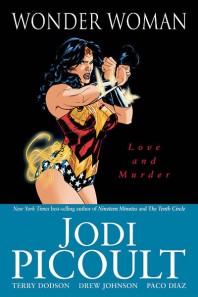 BB: And, finally, just because I’m a giant geek: You did a run on the Wonder Woman comic several years ago. We’re finally getting a big screen Wonder Woman in the upcoming Batman vs. Superman film. Do you ever think we’ll see a stand-alone Wonder Woman film? If so, what kind of Wonder Woman film would you like to see? Which aspects of Diana Prince’s story would you like to see explored?
BB: And, finally, just because I’m a giant geek: You did a run on the Wonder Woman comic several years ago. We’re finally getting a big screen Wonder Woman in the upcoming Batman vs. Superman film. Do you ever think we’ll see a stand-alone Wonder Woman film? If so, what kind of Wonder Woman film would you like to see? Which aspects of Diana Prince’s story would you like to see explored?
JP: Well, that’s a loaded question. I doubt we’ll see a stand-alone Wonder Woman film because the film industry is dominated by men. But if it DID happen, I’d love to see Diana’s everyday friction between trying to fit into the human world (which she loves so much ) and being an Amazon goddess. I had a blast exploring that in my run on Wonder Woman. For example, what good does it to do you to be stronger than any human or to be able to fly or lasso the truth out of someone if you walk into Starbucks and still don’t know how to order a coffee??
![Jodie Picoult [photo by Adam Bouska]](https://nwbooklovers.org/wp-content/uploads/2014/10/Jodi-Picoult-Adam-Bouska-198x263.jpg)
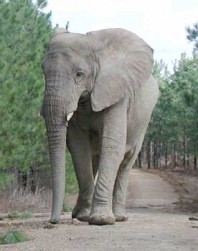
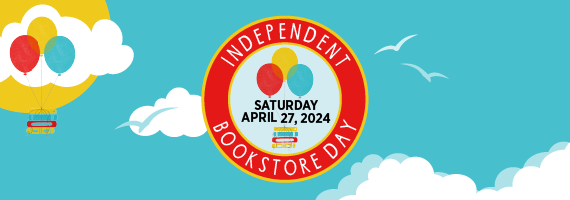
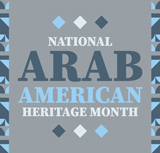
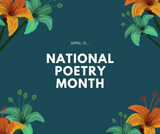
Real love never dies ! It survives death and the grave and thousands of years of reincarnation, and is there whenever you meet again. That is the beauty of reincarnation.